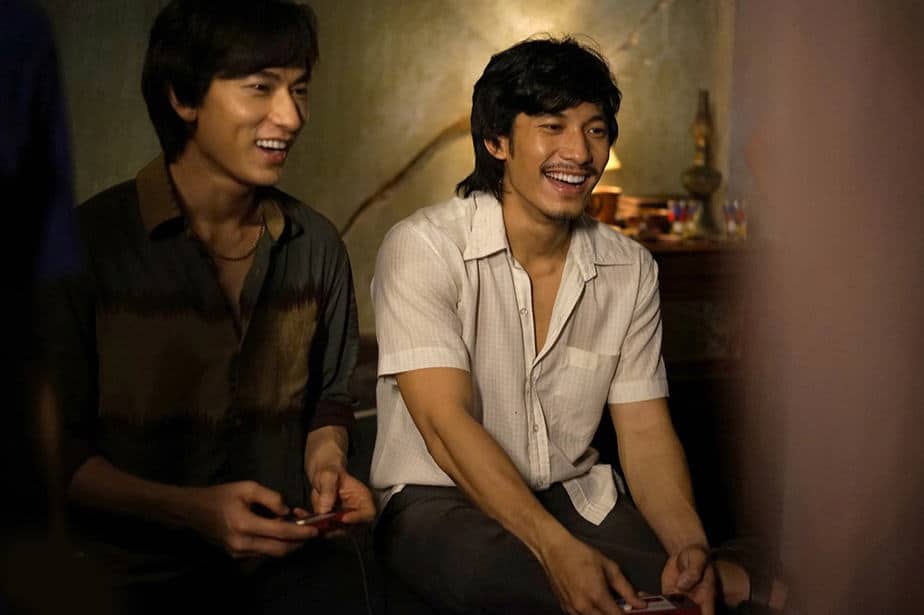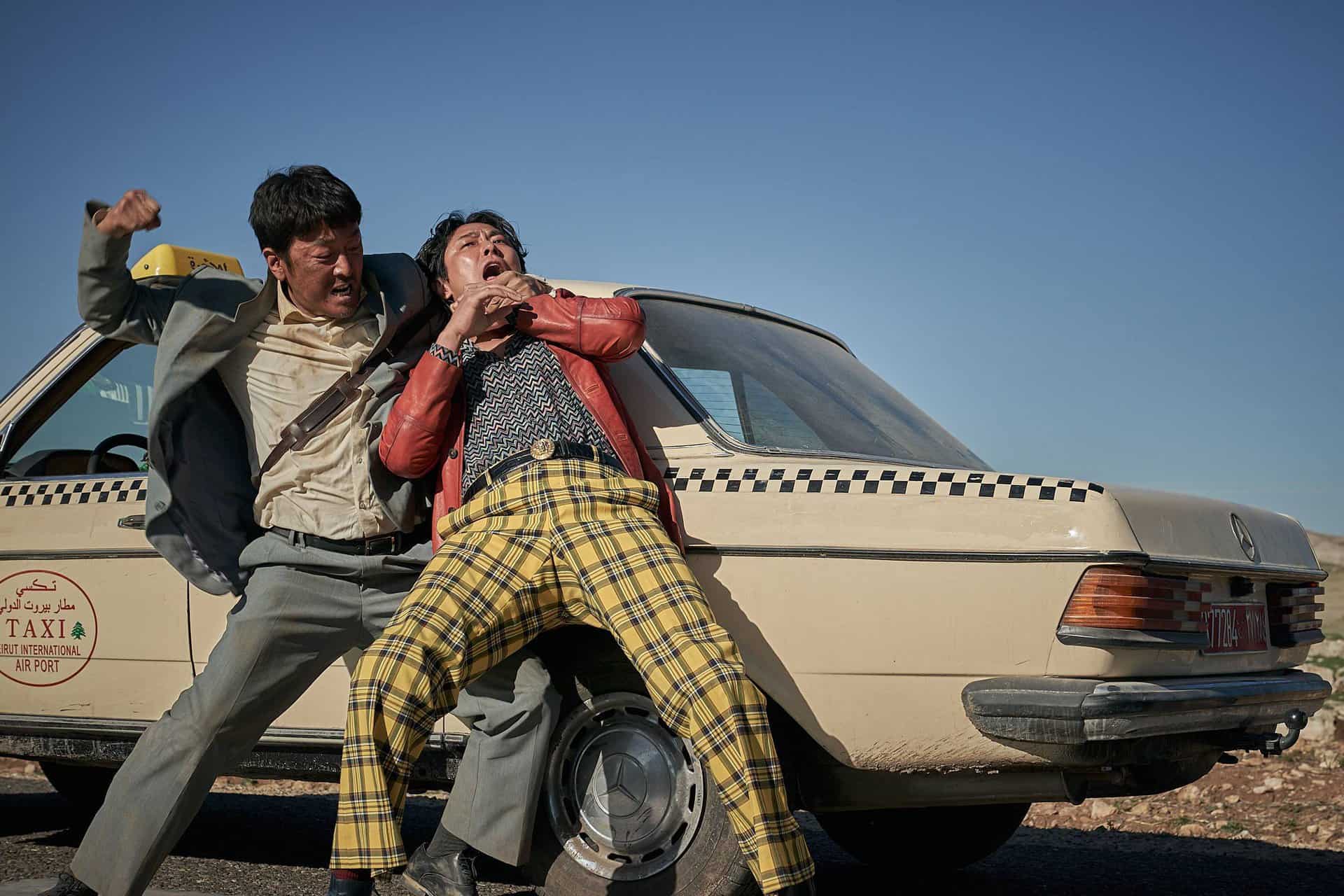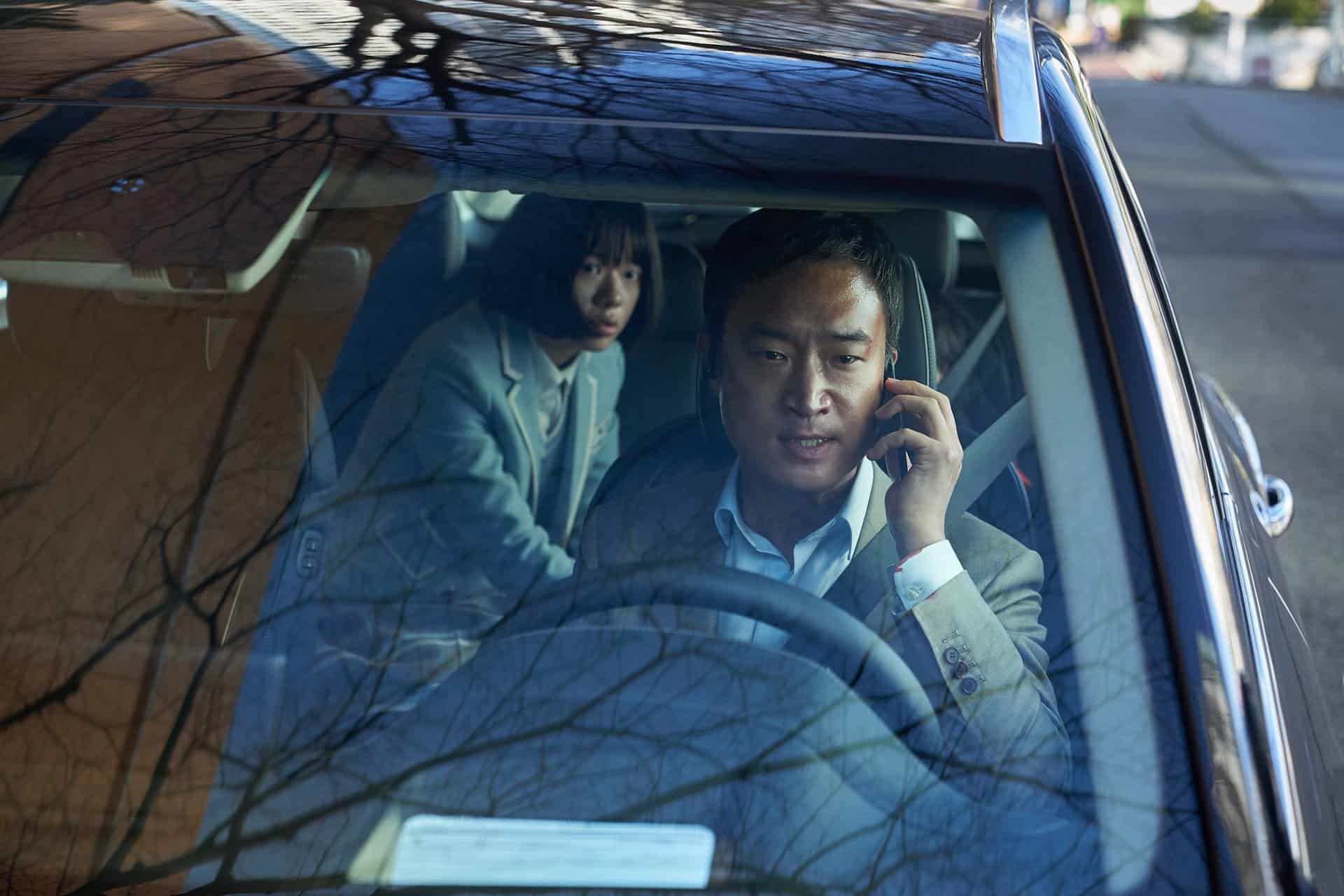A song lang is a musical instrument, a little percussion used in Vietnamese traditional music to keep the tempo for the musicians and the performers and – as the protagonist's father believed – to “guide the artists down the moral path”.
Vietnam-born director Leon Le left Saigon when he was 13 to go and live in California with his family and “Song Lang” is his debut feature after two US-produced short movies; an elaboration of his interrupted upbringing in Vietnam, the film is also a tribute to his beloved Cải Lương, the Vietnamese traditional folk opera.
“Song Lang” is screening at Five Flavours Asian Film Festival

It's the end of 1980s in Saigon. Introverted debt collector Dug (Lien Binh Phat) has been sleepwalking through most of his adult life in an attempt of erasing a painful adolescence and anesthetizing the pain of abandonment. He does his job, it's just a job, an “honest” job because it doesn't promise or deceive you; a debt collector collects debts, full stop. But when in one of his rounds he is sent to solicit a Cải Lương theatre company, memories come flooding back. Dung's father was a Cải Lương musician and his mother a performer; as a boy he grew up in a theatre, admiring the lavish shows from behind the curtains and breathing the backstage exhilarating atmosphere. He used to love his father's music, his mother's extravagant costumes and elaborated make up but it all had come to an end when the mother left and years later his father died.
Despite the theatrical past, Dung shows his ruthless gangster façade to the indebted performers but Linh Phung (Isaac) – the young star singer of the company – is not impressed by his display of arrogant masculinity. Later the fate – helped by a bar brawl and a Nintendo console – will bring the two together, giving them a chance to know each other better during a long, moonlit night, and discover that they have in common way more that they had imagined. Digging out the past is a wake-up call for Dung and a first step towards acceptance but – like in a Cải Lương Opera – actions have consequences and karma could be around the corner. On Linh Phung's side, this injection of unexpected emotions will help him blossoming into an accomplished artist.

“Song Lang” is a love story, gently told and slowly unraveling. The director's devotion for stage performance and Cải Lương is what has influenced all his life choices as a performer and director, taking him to this point; his movie is a passionate love letter to his teenage time in Saigon in the 80's, his tape cassettes and the way art influences life and vice versa.
Visually speaking, “Song Lang” is truly stunning, each shot is beautifully composed and the rich honey color palette makes the whole film looking like encased in amber with touches of jade and turquoise, and infusing it with a vintage allure that recalls the 60s more than the 80s but – together with the unlikely deserted streets of Saigon – it works as a sort of benign decontextualisation. If on one hand the movie strongly refers to a time and a place, on the other it has a peculiar theatrical feel to it, like a meta-stage where the actors play characters that perform, lie, conceal and dress up in the muddled zone where reality and fiction blur.
There is an undeniable chemistry between the two actors/characters that makes the narrative more engaging and keeps the grip for the whole film. Lien Binh Phat and Isaac, two Vietnamese heart-throbs and pop figures, give textured, believable performances, their charm being an effective conveyor of a love story yet to blossom.

When the two young men talk on the rooftop, in their decisive night out together, Linh says he believes time traveling is possible in three ways: through people, objects and places. In the same way director Le has traveled back to his Saigon time and unsurprisingly locations and props are the “primadonna” in “Song Lang”. Shot in District 5, an area of Ho Chi Minh City that still retains a vintage feeling, the team has succeeded in making the most of the local gems like the Thien Hau Temple with its incense coils (it will look familiar to Hong Kong lovers), and the existing and functioning Phuong Nam theatre.
While it's almost impossible not to recall “Farewell My Concubine”, several settings are very reminiscent of Wong Kar-wai's esthetic, like the striking rooftop scenes, so evocative of “2046” and “Happy Together”, and Dung's 50's apartment block with its green mosaic tiles and diagonal light projecting patterns on the wall, citing “The Hand”, “Days of Being Wild” and – again – “Happy Together”. But all in all “Song Lang” wholeheartedly owns a distinctive and elegant flavor and is jam-packed with meaningful, accurate details, lovingly curated and profoundly inherent to Vietnamese popular culture.













